Introduction
Discovering the health benefits of quail eggs in society.
Quail eggs may be the perfect addition to your diet if you’re searching for foods high in nutrients.
These little yet powerful gems are nutrient-dense and have been prized for ages all across the world.
Quail eggs are worth your attention, regardless of whether you’re a nutritionist, health enthusiast, or food blogger looking for your next feature.
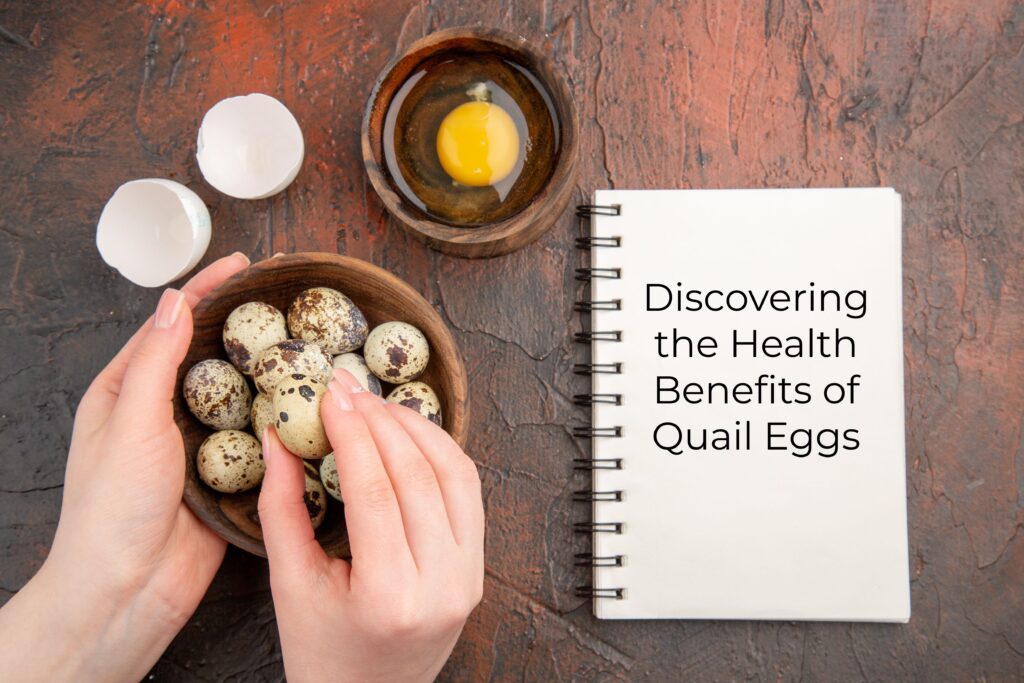
This is the reason:
Nutritional Profile of Quail Eggs
Despite their diminutive size, quail eggs have an impressive nutritional profile.
They are abundant in critical vitamins that help brain function and energy maintenance, including riboflavin, selenium, and B12.
Furthermore, quail eggs are a good source of heart-healthy lipids like omega-3 and omega-6 fatty acids.
They are a fantastic complement to any diet that emphasizes exercise because they are high in protein and ideal for building and repairing muscles.
Quail eggs are less likely to cause allergies than chicken eggs, therefore people with sensitivity can use them instead.
You can increase your nutritious intake and vary your meal selections by using quail eggs in your diet.
Table of Contents
The Nutritional Powerhouse
Despite being smaller than chicken eggs, quail eggs are incredibly nutritious.
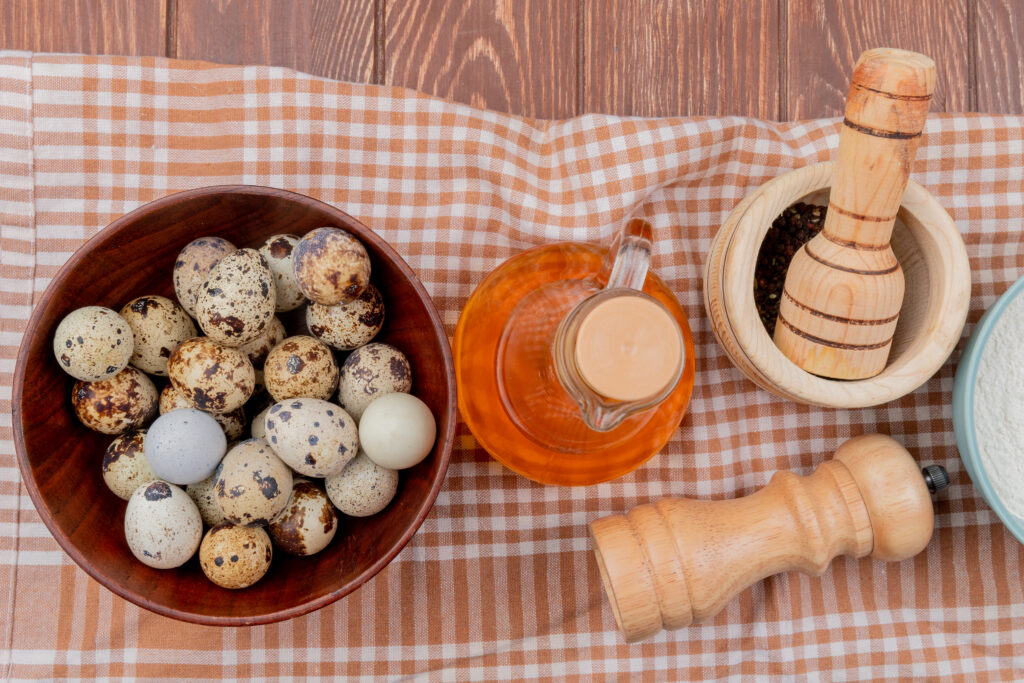
Compared to their larger counterparts, five quail eggs, which are the size of one typical chicken egg, can offer more vitamins and minerals.
Key Nutrients in Quail Eggs:
- Protein: Quail eggs are a fantastic source of high-quality protein, which is necessary for tissue growth and repair.
- Vitamin B12: This vitamin aids in the synthesis of red blood cells, DNA, and nerve function.
- Iron: Found in large quantities in quail eggs, iron is essential for the blood’s oxygen transport.
- Selenium: An effective antioxidant that aids in preventing cell damage.
Health Benefits of Quail Eggs
- Enhanced Immunity: Packed with vitamins A and C, quail eggs can help keep you healthy by fortifying your immune system.
- Improved Vision: Over time, the vitamin A content can help to improve vision by supporting eye health.
- Support for Metabolic Processes: B vitamins, such as B12, facilitate metabolic processes that more effectively convert food into energy.
- Heart Health: Quail eggs’ potassium and magnesium content aids in blood pressure regulation and heart health maintenance.
- Allergy Relief: Ovomucoid protein, which is found in quail eggs, is recognized to lessen allergic symptoms.
How to Incorporate Quail Eggs into Your Diet
Would you like to sample quail eggs? Here’s how to enjoy them easily:
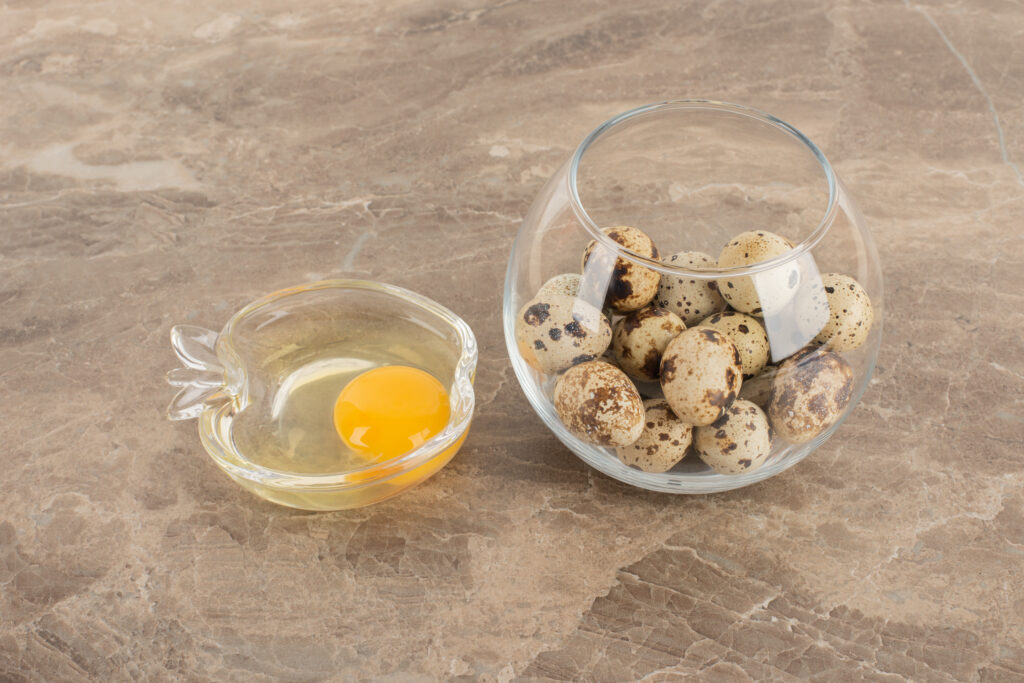
- Boiled: Excellent on salads or as a snack.
When poached, it tastes great with avocado or on toast.
- In omelets: Combine them with cheese and spinach for a breakfast that is high in nutrients.
- Baked Dishes: To add a gourmet touch, use them in frittatas or quiches.
Buying and Storing Quail Eggs
To ensure quality, make sure the quail eggs you buy come from reliable suppliers.
For optimal flavor and nutritional value, keep them refrigerated and eat them within a few weeks.
Precautions and Considerations
Even though quail eggs are a healthy supplement to many diets, there are a few things to keep in mind before using them frequently.
First of all, quail eggs are higher in nutrients than chicken eggs, therefore it’s important to eat them in moderation to prevent taking too much of any one nutrient.
Since eggs are generally a common allergen, people with certain sensitivities should proceed with caution.
Furthermore, it’s simple to misjudge quantities and consume more than planned because of their small size.
It’s crucial to remember that quail eggs, like other eggs, contain cholesterol for people watching their cholesterol levels.
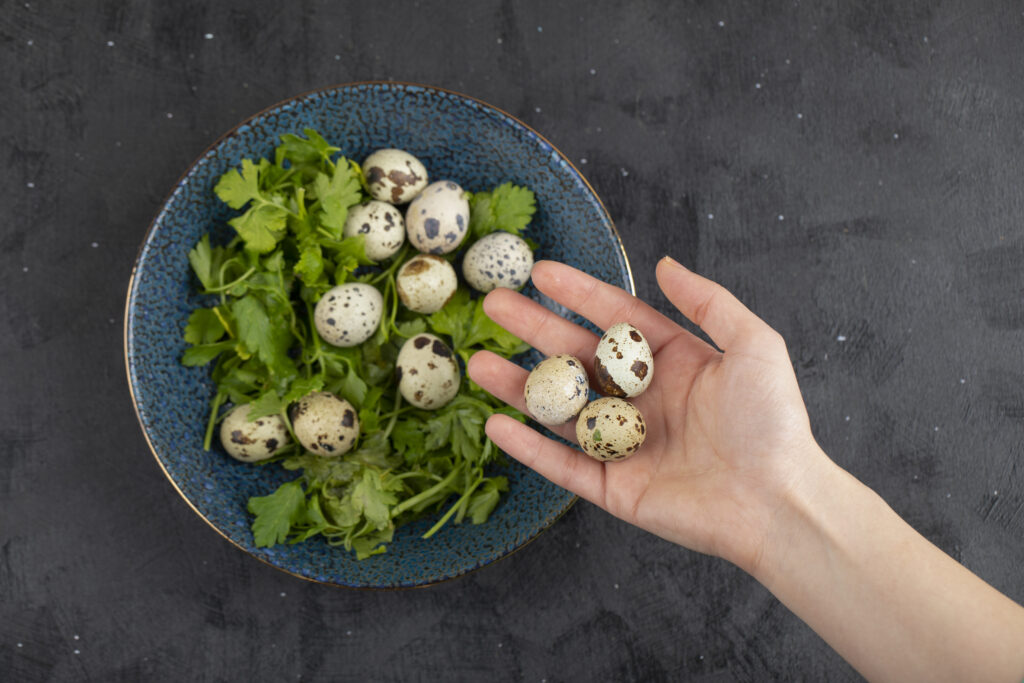
They should therefore be taken with a well-balanced diet. Lastly, to lower the danger of bacterial diseases like salmonella, make sure quail eggs are cooked through.
FAQs
1. Are quail eggs safe to eat raw?
Although some individuals eat quail eggs raw, cooking them lowers the chance of contracting a foodborne illness. Quail eggs are safer to consume when cooked since any possible bacteria are eliminated.
2. Can children eat quail eggs?
Indeed, quail eggs can be a healthy supplement to a child’s diet and are safe for them. They should be introduced gradually, though, and any adverse reactions should be well monitored, particularly if they have dietary sensitivities.
3. How do quail eggs compare to chicken eggs in terms of taste?
The flavor of quail eggs is slightly more intense and richer than that of chicken eggs. Because of this, they can lend a gourmet touch and be a delicious complement to a variety of recipes.
4. How many quail eggs can I eat in a day?
Moderation is essential with any cuisine. For the majority of people, eating up to six or eight quail eggs a day is generally regarded as safe and healthy. They should always be balanced with a diverse diet.
5. Where can I buy quail eggs?
You may frequently find quail eggs online, at specialty grocery stores, and at farmers’ markets. Prior to buying, always verify their freshness and provenance.
Conclusion
A nutrient-dense, adaptable choice that can improve your diet is quail eggs.
Your body and readers will appreciate you adding quail eggs to your repertoire, whether your goal is to write about the newest culinary trends, try new dishes, or enhance your health.
Are you eager to learn more about nutrient-rich food dishes and fascinating health benefits? For more interesting stories and views, keep checking out our blog.
If you have tried quail eggs, please leave a comment below with your thoughts and preferred recipes!
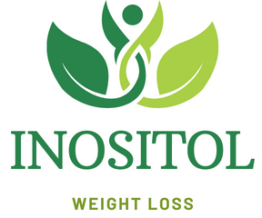
Pingback: The Power of Physical Engagement in Your Wellness Journey -